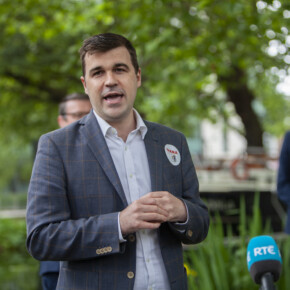Finally, the Government is listening
Dublin People 28 Jun 2014THE Taoiseach, in a recent Dáil statement regarding the banking inquiry, provided assurance that
“the political policy regulatory structures on banking governance will be examined by the Oireachtas committee, free of any direction from the Government and free to do as an Oireachtas committee can do under the new Act
?.
I listened to the Taoiseach’s statement intently and with a sense of relief, happy with the assurance that the banking inquiry will not be subject to Government interference. Let’s hope that this is the case. It is up to each political party to decide if a free vote is allowed regarding a particular issue. Usually, free votes are not allowed.
Last July, my Reform Alliance colleagues and I made a decision to honour a pre-election commitment that our former party had made. It was something that we did not do lightly and which involved us being expelled from our political party.
When contemplating matters of extreme importance, it is my belief that a legislator must have the freedom to follow his or her own conscience on the matter. Those elected representatives involved in such a significant issue as the banking inquiry similarly deserve the freedom to act outside the control or input of Government.
Irish politicians have for many years been confined by the whip system, with just 54 TDs voting against their party in the last 30 years. That represents only 3 per cent of all TDs elected during that period. With so many politically ambitious politicians in the Dáil, few are willing to speak out against the whip and risk losing favour with senior figures in their party.
Most TDs want to be ministers and are unwilling to do anything that would risk their chances of getting promoted. Those who vote against their party risk being banished to a
‘backbench graveyard’ to live out the rest of their political career.
Reform Alliance addresses the need for change to be brought about to the Whip system in our policy document,
‘Political Reform – Delivering a New Political System’ that was officially launched this month.
Our policy suggests that the Constitution needs to be amended to make all members of the Oireachtas representative of the whole people, not bound by orders or instructions, and responsible only to their conscience when carrying out their work and duties. We believe that each party in receipt of public funds should allow members to disassociate themselves from a party position if that conflicts with a member’s own conscience.
An added benefit of reforming the whip system is that ministers will have to actively persuade a majority of members about the merits of any new law and show that the law is in the best interest of the country as a whole.
Amending the whip system in the way we suggest would bring Ireland in line with other countries where voting against the party position is not an ex-communicable offence.
In the UK, MPs regularly vote against the party Whip on political issues when they genuinely believe their party’s position is wrong. In the first year of the current Conservative and Liberal Democrat coalition, 52 per cent of parliamentary votes resulted in some Government MPs voting against their own party. None of these MPs were expelled from their party.
Most people would not be impressed by a TD who voted for something they believed to be wrong. When John F Kennedy was standing for election as President of the United States he gave a speech to the Greater Houston Ministerial Association regarding his religion and any concerns that they may have about him being a Catholic. In his speech, he referred to his conscience and stated that he would make his decisions,
“In accordance with what my conscience tells me to be in the national interest
?.
A more fair political system would allow for legislators to stick to their principles on matters of importance. In addition to making it a more fair system for elected representatives by ensuring that people are not going against their beliefs when voting, this system would help to address the permanent
‘group think’ mentality that prevails in Irish politics.
It is this
“group think
? mentality that ultimately contributed to the collapse of our economy. The Nyberg Report into the banking sector in Ireland recognised that there was a pressure for
‘group think’ in the Department of Finance, in the Financial Regulator’s office and at the Central Bank. The report notes that thinking outside the box was not encouraged and senior management did not support contrarian views provided by employees.
Politics and Government would be stronger, not weaker, when TDs and Senators are given the responsibility to
“make up their own minds
? and not to simply follow the party whip’s instruction.
The recent elections clearly showed that the public is tired of the old ways of political business. A better politics is required. A change to our political whip system must be part of this new approach.











